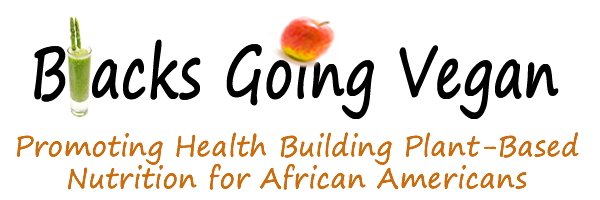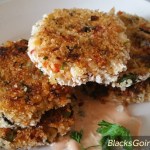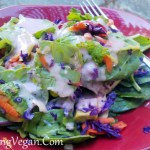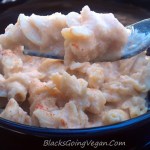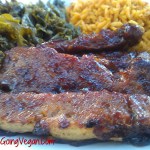Cinnaberry Green Smoothie
Aw sooky sooky now – this here is a Deb Original Blend. How did these ingredients come to be mixed together?
Well, I was reading about how cinnamon (a particular variety called Ceylon cinnamon, not the stuff you buy at Walmart, Costco or Safeway), has been linked to improved blood sugar in diabetic and hyperglycemic individuals (pre-diabetes). Not only that, it is reported to help lower levels of low-density lipoprotein (LDL) cholesterol and triglycerides, two substances commonly associated with heart disease.
Some scientific researchers go so far as to claim that Ceylon cinnamon lowers blood sugar as well or even better than some medications. Both cassia (the kind commonly sold in grocery stores), and Ceylon cinnamon have been found to aid in intestinal health and free radical scavenging. Research has shown that cinnamon “may also be beneficial in preventing stomach flu, improving digestion, alleviating the symptoms associated with irritable bowel syndrome (IBS), guarding against candida infections, treating arthritis and even preventing and treating cancer.”
You can read more at these links:
- Ceylon cinnamon lowers blood sugar better than some medications (Natural News)
- Cinnamon may help lower blood sugar, but one variety may be best (NPR)
- Author of The End of Diabetes on choosing the right variety of cinnamon (Dr. Joel Furhman)
- Cinnamon and diabetes (WebMD)
Though some medical doctors are skeptical, I figured there were enough positive results for me to investigate further. Plus I like cinnamon in coffee and cookies anyway, so what could the harm be?
So I took it upon myself to pick some up at my neighborhood natural foods store, and I’ve been putting just 1/2 tsp at a time into my oatmeal every morning, and adding it to smoothies.
The Cinnaberry Smoothie combines some of the most nutritious fruits and vegetables in an easy to ingest form – a glass! Remember, a high fruit and vegetable intake is also associated with healthy skin and hair, increased energy, and lower body weight. Increasing your daily consumption of fresh fruits and vegetables significantly decreases the risk of obesity and overall early mortality.
Bananas: Bananas have many nutritional benefits, and also combat depression, make you smarter, cure hangovers, relieve morning sickness, protect against kidney cancer, diabetes, osteoporosis and blindness. Bananas are reported to be a natural antacid, providing relief from acid reflux, heartburn and GERD. They also reduce swelling, protect against type II diabetes, aid weight loss, strengthen the nervous system, and help with the production of white blood cells, all due to high levels of vitamin B-6. Eating bananas also helps protect against muscle cramps during strenuous workouts and helps prevent night time leg and foot cramps (I know this for a fact because I used to get them all the time).
Lacinto Kale: Kale is one of the Super Foods, and Lacinato leaves extend excellent health benefits, lowering cholesterol, fighting cancer, and decreasing inflammation in the body. One cup of Lacinto kale provides more than 100 percent of the daily value (DV) of vitamins K and A, and 88 percent of the daily recommended value for vitamin C. Like other members of the brassica family such as cabbage, collards and Brussels sprouts, kale is a rich source of organosulfur compounds that have been linked to cancer prevention.
Almond Milk: Almond milk contains heart-healthy poly- and monounsaturated fats and is free from saturated fat, trans fats and dietary cholesterol. Though I make my own almond milk using this recipe, commercial almond milk can be purchased at any grocery store. Almond milk is usually fortified with vitamins and minerals like calcium, vitamin A, iron, vitamin E, vitamin D, B vitamins, magnesium, zinc, copper and manganese to increase its nutritional value. Since the amount of vitamins and minerals in almond milk varies considerably by brand, check the nutrition label for more specific fat, calorie, carb, sugar and other nutritional information.
 Strawberries: Regular consumption of anthocyanins, a class of flavonoids found in berries, can reduce the risk of a heart attack by 32% in young and middle-aged women. The antioxidants quercetin, kaempferol, and anthocyanins have all been shown to reduce the formation of harmful blood clots associated with strokes. High potassium intakes have also been linked with better heart health and a reduced risk of stroke. A natural anti-inflammatory, the high magnesium and potassium in strawberries contribute to better blood pressure, and better fluid balance in the body.
Strawberries: Regular consumption of anthocyanins, a class of flavonoids found in berries, can reduce the risk of a heart attack by 32% in young and middle-aged women. The antioxidants quercetin, kaempferol, and anthocyanins have all been shown to reduce the formation of harmful blood clots associated with strokes. High potassium intakes have also been linked with better heart health and a reduced risk of stroke. A natural anti-inflammatory, the high magnesium and potassium in strawberries contribute to better blood pressure, and better fluid balance in the body.
Medjool Dates: Contain antioxidant flavonoids such as ß-carotene, lutein, and zea-xanthin. These antioxidants are believed to have the ability to protect cells and other structures in the body from harmful effects of free radicals. They are also rich in minerals like iron, calcium, potassium, manganese, copper, and magnesium. Eating dates may offer some protection from colon, prostate, breast, endometrial, lung, and pancreatic cancers.
Whip some up and enjoy! For only 250 calories you will have in your hot little hand a glass of powerful nutrition, and its pretty tasty to boot.

- 1 cup packed Lacinto kale leaves (no stem)
- 1 cup almond milk
- 1 small banana (about 6"), peeled
- ½ tsp. Ceylon cinnamon (or to taste)
- 1-2 Medjool dates (seed removed)
- 5-6 fresh strawberries, stem removed
- Place kale leaves in bottom of blender.
- Add remaining ingredients and a few cubes of ice if you prefer a cold smoothie.
- Pulse blender to lightly blend ingredients, then turn blender on LIQUIFY for 30-45 seconds to complete mixing process.
- Pour into glass.
Category: Beverages & Smoothies
